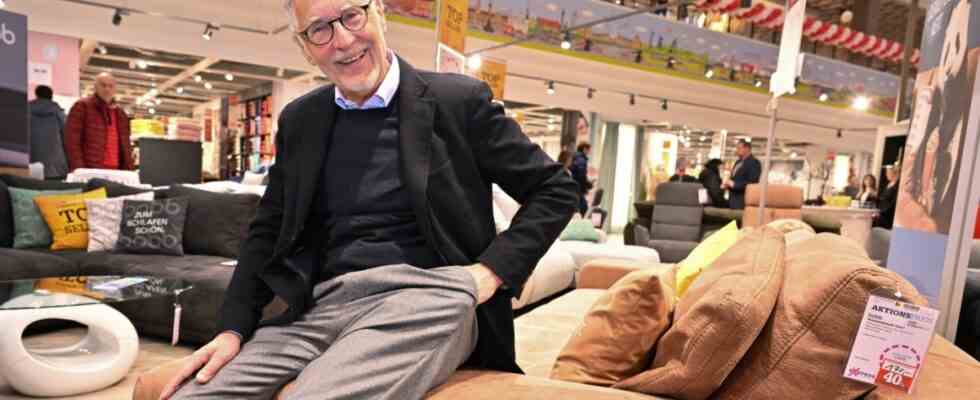Kurt Krieger has a great need to take the invited birthday guests down to the basement. “You’ve never seen a furniture store like this before,” he promises, and hurries briskly ahead to the freight elevators.
Kurt Krieger is an entrepreneur like there are many: furniture dealers. On the other hand, he is also an entrepreneur like there are not so many anymore. At almost 74, he still sets the tone. He is always permeated with broad Berlin dialect, not always 100 percent politically correct, but always approachable and hands-on. At least on this rather special occasion. How many businessmen who’ve made tens of thousands of dollars (Forbes lists Krieger’s net worth at $1.4 billion) make a name for themselves when one of their branches turns 15?
Kurt Krieger grew up in Berlin – with his grandfather, a carpenter. The connection shaped him. When in 1967 the naming rights of the Höffner company – a legendary Berlin furniture store from the 1930s, which also went back to a carpenter – became available, Krieger struck. In Wedding in 1970 he laid the nucleus for his company, which grew rapidly after reunification, especially in the East: 1992 Chemnitz, 1994 Dresden, 1995 Rostock, 1996 Magdeburg, 1997 Erfurt.
Munich was then added in 2008 after Hamburg (2005) and Frankfurt am Main (2006), albeit more by accident. Actually, Krieger had another location in Bavaria in mind, but that was behind a noise protection wall, so that from the street only the Ö dashes could have been seen from the name. Krieger likes to shorten his business to “Höffi” himself, but that went too far for him. Sometimes it is curious what things play a role in the question of where a 100 million euro investment goes.
That’s how much the construction in Freiham, where there was little else at the time, cost 15 years ago. When he was finished, the financial crisis was raging and the banks were afraid. So it took a while before the parking deck was built. The company has also invested around 30 million euros since it opened in the very west of the city. 400 people are busy here selling furniture on 35,000 square meters.
Managing director Joachim Hoffmann (left) and warehouse manager Mike Beckstein.
(Photo: Catherine Hess)
But back to the basement. “Again, a heartfelt thank you to the city of Munich,” Krieger would like to say on the half-round anniversary. The fact was that the property originally acquired was actually too small to accommodate a house of the dimensions in which Krieger calculates, given the given height.
The furniture market has been shaped by Ikea for 30 years. In order for business to flourish, customers must also be able to take many parts with them elsewhere. In order for this to be possible, storage space is required. And so that they could develop, a neighboring property was needed that the city itself actually had in mind. A land swap was arranged. And even today, Krieger is sure that it wouldn’t have been so easy in his hometown, where he usually finds a lot of things “fragrant”.
This cleared the way for the warehouse and the basement, which has really become an impressive building: two floors, together around twelve meters deep and 440 meters long (Warrior: “You can walk it off! The number is right.”). All built on a heavy-duty foundation and “built like a tanker floating in groundwater” (Warrior). Around 50,000 products are packed here. It is like a furniture ark under the furniture store.
Its launch a decade and a half ago will be celebrated until February 25th. The cellar, however, remains an insider tip.

